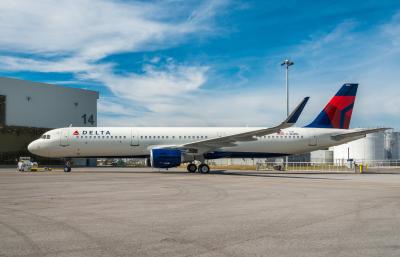
Global Economic Woes Contribute to Continued Economic Moderation in Georgia
 ATLANTA–Stuttering global growth and escalating trade tiffs that are affecting national economic prospects are also being felt in Georgia across many employment sectors, according to Rajeev Dhawan of the Economic Forecasting Center at Georgia State University’s Robinson College of Business.
ATLANTA–Stuttering global growth and escalating trade tiffs that are affecting national economic prospects are also being felt in Georgia across many employment sectors, according to Rajeev Dhawan of the Economic Forecasting Center at Georgia State University’s Robinson College of Business.
In his quarterly “Forecast of Georgia and Atlanta,” Dhawan wrote that he expects two Federal Reserve rate cuts before 2019 ends, asking, “Will these extra cuts help us negate the fallout from our trade spats? And what relief will it provide at the state and Atlanta metro levels?”
The forecaster’s answer to these questions is mixed. Yes, lower rates should help with interest-sensitive sectors such as home refinancing, vehicle sales and small business loans.
“But, these rate cuts cannot overcome the hesitation of big corporations to undertake the capital expansions that determine future job growth,” said Dhawan in the report released Aug. 28, 2019. “These firms are global in scope and dependent on external markets for a big proportion of their revenues.”
A case in point is Delta Air Lines. The state’s largest corporate employer collects 30 percent of its passenger revenue from international operations. In the second quarter of 2019, its global sector grew by 5.2 percent, compared to 8.7 percent for the same period in 2018.
The Port of Savannah, another transportation crown jewel, is largely responsible for driving the economic growth of the Savannah metro area. In mid-2018, Savannah’s job growth was 2.7 percent, outpacing the state’s job growth rate of 1.9 percent when global trade volumes were good. But by June 2019, Savannah’s growth rate dropped to 1.2 percent, putting it below the state’s 1.7 percent growth as the global economy cooled.
“Globally connected sectors and areas grow higher than average when the world economy is booming, but they decelerate sharply when the tide turns,” Dhawan said.
The global health of Fortune 500 companies headquartered in Georgia determines the hiring of managerial jobs in Atlanta, which has a multiplier effect on downstream sectors.
Domestic demand sectors are performing better than globally connected ones, particularly hospitality (historically high occupancy rates), education (growing due to population growth), healthcare (overall population growth and aging) and construction (new hotel, office and apartment developments).
“Fed rate cuts will alleviate the pain somewhat, and relatively clear skies will emerge, but without a rainbow,” said Dhawan.
Highlights from the Economic Forecasting Center’s Report for Georgia and Atlanta
- Georgia employment will add 65,200 jobs (11,400 premium jobs) in 2019, gain 53,500 jobs (9,400 premium) in 2020 and increase by 48,200 (9,700 premium) in 2021.
- Nominal personal income will grow 4.3 percent in 2019, then increase by a better 5.1 percent in 2020 and 2021.
- Atlanta will add 45,300 jobs (7,900 premium positions) in 2019, moderate to 37,900 jobs (7,200 premium) in 2020 and 35,600 jobs (7,300 premium) in 2021.
- Atlanta housing permitting activity will fall 18.9
